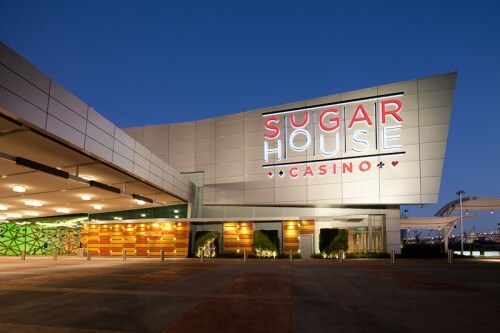The state of Pennsylvania, particularly the city of Philadelphia, has arrived at a rational casino gaming approach that benefits both the public and the state as a whole financially. Up for grabs is the license to build another casino in Philadelphia or the immediate region but, the difference here is that it is meeting positive reinforcement instead of opposition. What is already established is the fact that a state operated gaming system can be run properly and make sense without all the political posturing. It can also generate record amounts of income in a short amount of time, which is why so many are jumping off and on-board.
Unlike states such as New York, Massachusetts, and the most recent New Hampshire project, where wannabe casino owners try to muscle and force their way into small town communities (see the battle going on in Tyre, New York) or where the political show is holding up gamers enjoyment and revenue for the state, Pennsylvania has made state-run casinos simple and profitable. A study conducted in evaluating the feasibility and profitability of a second Philadelphia gambling location shows that not only does it make financial sense, but residents welcome the additional revenue and guaranteed job growth.
Here’s How it Started…
A bit of history is useful here to understand why the same types of projects are viewed different in PA and in the City of Brotherly Love. Pennsylvania concluded about a decade ago that it was losing vast amounts of revenue to Atlantic City’s casinos in neighboring New Jersey as its residents flocked there to enjoy both the oceanfront and gaming venues. It had been this way since the inception of legal gambling in the US. Using some basic common sense, and without sullying the reputation of other tourist attractions, a state gaming control board was established and given permission to award 14 licenses for both land-based and online slot machine play only. Five standalone casino resort licenses were included in the package, along with racetracks and two licenses for e already existing hotel resorts. The decision not only kept Pennsylvania residents in their home state, but soon attracted gamers from its neighboring states – including New Jersey. Basically it was, and still is, a huge success.
Back to Right Now…
Regarding the Philadelphia license, the report submitted to the Pennsylvania Gaming Control Board said that there is still a growing interest in gaming in southeastern Pennsylvania, and that adding a new casino poses no threat to the profitability of existing casinos. Stopping short of endorsing the area as a major tourist attraction for gamers, it was concluded that there was sufficient local interest to keep the roulette wheels spinning, and the money flowing in.
Opponents of state casinos may be dismayed at the success of the plan, perhaps even going as far to impose its own set of moral values on the people of the Philadelphia area. However, since the freedoms given to American citizens allow them to spend their money however they choose, there is not much of an argument to make. Most players are not gambling addicts or financially irresponsible. They are mostly people who like to congregate at a safe location with a modest amount of money and enjoy playing and being entertained.
Why is it So Different State to State?
The question is, why do state operated casinos thrive in some states while others struggle to stay afloat? For example, this week Illinois reported an average loss of 5 percent for its 6 East Saint Louis casino locations. Speculation exists whether there is sufficient income in the region to sustain viable operation of all six casinos simultaneously, while others argue that there is a clear loss of interest in gaming in their specific area. See more on casino projects in Illinois. Whatever the reason, losses translate into lost revenues for the state, not local residents.
One big reason state-run casinos in PA are so successful is that they are packaged as part of an entertainment and tourist package rather than advertising the casino as the sole source of entertainment. The New York city and Philadelphia areas are not only densely populated, but have a variety of alternatives for residents and tourists alike. Putting a casino in a small town, where the only reason to visit is to gamble, is a huge risk. If players go and don’t win, they flee the town and maybe never go back to do anything again, let alone gaming. It invites people of ill reputation to “help” those that lost all of their cash at the casino like pawn shops, strip clubs and gold salvage shops that drive down .
This idea of packaging casinos with entertainment continues to grow with licensees building retails stores and resort hotels in addition to the gambling floor, making it a total package with viable alternatives for the players – win or lose. Here is where the “creation of jobs argument” works well for potential casino builders to get public support on their side. People are not looking for just a job but steady employment at a decent wage. Retail and service oriented jobs can meet this requirement, putting cash in the pockets of area residents that will result in a higher standard of living.
Some are still very much against it inclusive the “Casino Free Philadelphia” group. and the State is likely going to lift current restrictions of alcohol sales after midnight and personal checks being cashed over $2,000.
And Then There is Internet Gambling…
For about 20 years, the casino industry has advertised itself as a place to be entertained instead of simply a chance to walk away with some extra money in your bank account after experiencing an over-embellished luxurious world in print, on billboards along the highway, and on TV. Continuing this strategy to build as a part of a state tourism and visitor interests as an alternative will give casual and resident players a number of better choices. One of these is the introduction of the newly legalized USA casino online for real money sites that can be accessed on or off property using a home computer or mobile device. Many of them have apps on the App Store (iPhone/iPad) and Google Play Store (Android/Windows) that are tailored to slots players where they can play with free or real cash credits.
This progress as some would see it is allowing both the internet and the land-based industries to grow at a rapid pace in a direction set in motion fueled by smart gaming options. Down the road, the true test for future construction may be in the legislation of online gaming within each of the individual 50 states and networking the together. For now, what makes sense is to build according to public demand and let the market determine the course of state-run gaming projects. Although it looks like the decision of Pennsylvanians have already been made. Currently the most land-based popular venue is the Sugar House Casino.







